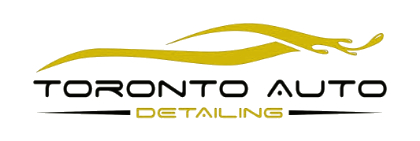Car Wrap FAQ
- What is car wrapping?
Car wrapping, also known as vehicle wrapping or vinyl wrapping, is a process of applying a thin vinyl film to the exterior surfaces of a vehicle. It allows you to change the color, texture, or finish of your vehicle temporarily or permanently.
- What are the benefits of car wrapping?
Car wrapping offers several benefits, including:
- Aesthetics: It allows you to transform the appearance of your vehicle, change its color, or add custom designs.
- Protection: The vinyl film acts as a protective barrier against minor scratches, stone chips, and UV rays, preserving the original paintwork.
- Reversibility: Car wraps can be removed without damaging the underlying paint, making it possible to revert to the original look or apply a new wrap.
- Advertising: Car wrapping provides an effective platform for businesses to promote their brand or products through vehicle graphics.
- How long does a car wrap last?
The lifespan of a car wrap depends on various factors such as the quality of the vinyl material, installation technique, maintenance, and environmental conditions. On average, a professionally installed car wrap can last between 3 to 7 years.
- Can a car wrap be removed?
Yes, car wraps can be removed. Professional installers can safely remove the vinyl film without causing damage to the vehicle’s paint. However, the condition of the underlying paint and the quality of the installation can affect the ease of removal.
- Does a car wrap damage the original paint?
When installed and removed correctly by professionals, car wraps do not damage the original paint. In fact, they can protect the paint from minor abrasions and sun damage. However, if the paintwork is already in poor condition, or if the wrap is improperly installed or removed, it may cause some adhesive residue or minor paint imperfections.
- How should I maintain a car wrap?
Maintaining a car wrap involves using gentle cleaning solutions, avoiding abrasive materials or harsh chemicals, and washing the vehicle by hand or with a soft cloth. Regular cleaning and avoiding extreme conditions, such as excessive heat or exposure to harsh chemicals, can help prolong the life of the wrap.
- Can I wrap a leased or rented vehicle?
Yes, car wrapping is an excellent option for leased or rented vehicles as it allows you to change the vehicle’s appearance without permanently altering the original paint. However, it is advisable to consult with the leasing or rental company regarding any restrictions or requirements before getting a car wrap.
- Can I wrap specific parts of the car instead of the entire vehicle?
Yes, car wrapping can be applied to specific parts of the vehicle, such as the hood, roof, mirrors, or accents, instead of the entire car. This is often done for customization purposes or to create a unique look.
- Can I wash my car immediately after getting a car wrap?
It is recommended to wait at least 24-48 hours after the installation of a car wrap before washing the vehicle. This allows the adhesive to cure properly and ensures the best bond between the vinyl film and the vehicle’s surface.
- How much does a car wrap cost?
The cost of a car wrap can vary depending on factors such as the size of the vehicle, the type and quality of the vinyl material used, the complexity of the installation, and any additional customizations or graphics. It is best to consult with professional car wrap installers and request a quote based on your specific requirements.
Remember to consult with professional car wrap installers or official sources for more detailed and accurate information regarding your specific vehicle and wrapping needs.
